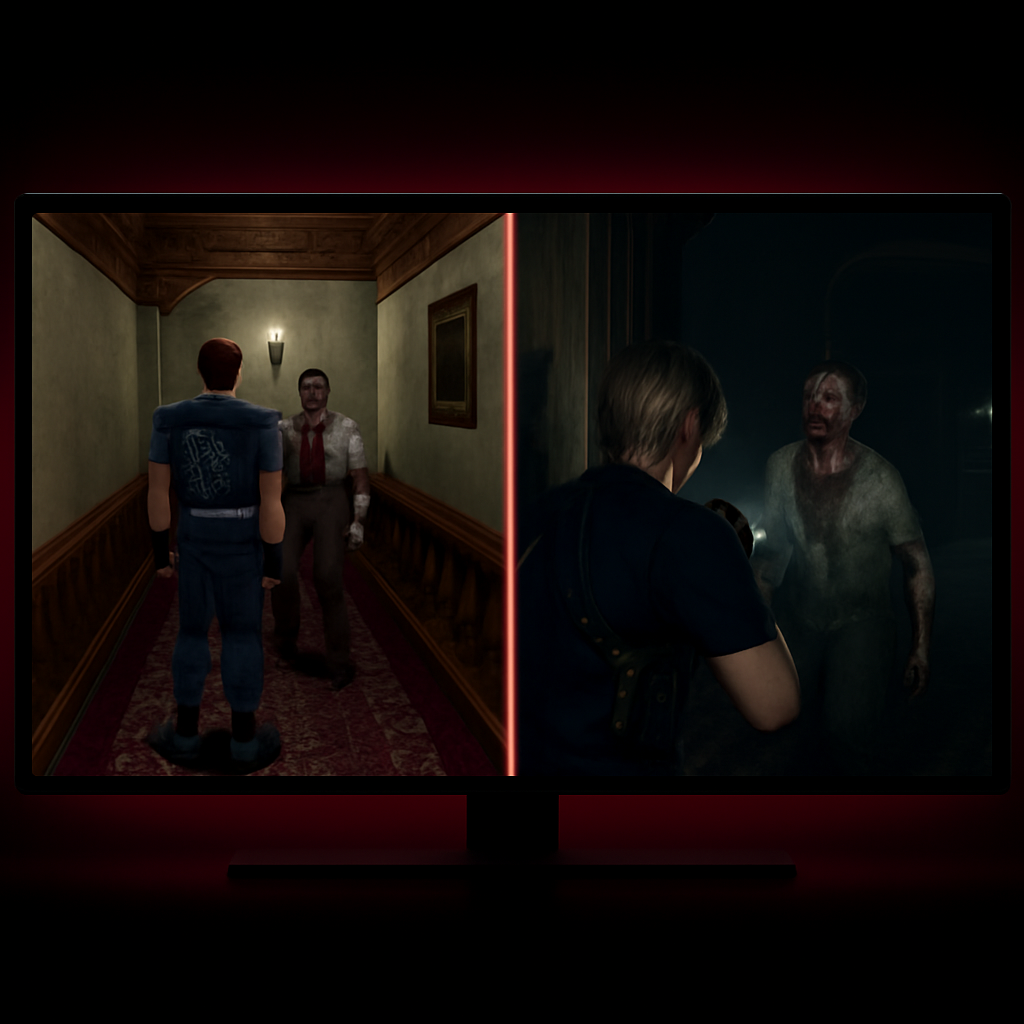The Evolution of Horror Games: From Resident Evil to Modern Masterpieces

From the pixelated scares of early survival horror to today's photorealistic nightmares, horror games have undergone a remarkable transformation. What started as simple jump scares and resource management has evolved into sophisticated psychological experiences that push the boundaries of interactive storytelling.
The Foundation: Resident Evil and Survival Horror
The modern horror game template was largely established by Capcom's Resident Evil in 1996. The game introduced the core survival horror formula: limited resources, puzzle-solving, and an atmosphere of constant dread. Players weren't action heroes — they were vulnerable survivors navigating a world designed to kill them. This paradigm shift from power fantasy to vulnerability became the genre's defining characteristic.
The Silent Hill Revolution
While Resident Evil focused on external threats, Konami's Silent Hill series pioneered psychological horror in gaming. The fog-shrouded town became a character itself, reflecting the protagonist's inner turmoil through environmental storytelling. Silent Hill 2, in particular, demonstrated how horror games could tackle mature themes like guilt, trauma, and mental illness with unprecedented sophistication.
The Action Horror Era
The mid-2000s saw horror games embrace more action-oriented gameplay. Resident Evil 4 revolutionized the series with its over-the-shoulder perspective and increased combat focus, while Dead Space perfected the formula with strategic dismemberment and immersive UI design. These games proved that horror and action could coexist without sacrificing tension.
The Indie Horror Renaissance
The rise of independent development brought fresh perspectives to horror gaming. Titles like Amnesia: The Dark Descent stripped away combat entirely, forcing players to run and hide from threats they couldn't fight. This "defenseless horror" approach influenced countless indie developers and major studios alike, proving that vulnerability could be more terrifying than any weapon.
Psychological Horror's Modern Masters
Contemporary horror games have embraced psychological complexity like never before. P.T. (though ultimately cancelled) demonstrated how environmental storytelling and subtle audio design could create profound unease. Games like Layers of Fear and What Remains of Edith Finch have pushed horror into art house territory, using the medium's interactive nature to explore themes of madness, family trauma, and existential dread.
Technology's Role in Terror
Advances in graphics technology have enabled increasingly realistic horror experiences. Photorealistic character models make emotional moments more impactful, while improved lighting systems create more convincing shadows and atmosphere. VR has opened entirely new frontiers for horror, creating unprecedented levels of immersion and presence.
The Multiplayer Horror Phenomenon
Asymmetrical multiplayer games like Dead by Daylight and Phasmophobia have created new social dynamics around fear. These games transform horror from a solitary experience into a shared one, where players can support each other or become sources of terror themselves. The unpredictability of human behavior adds layers of tension that AI opponents can't match.
Horror's Expanding Boundaries
Modern horror games tackle increasingly diverse themes and settings. From the cosmic horror of Call of Cthulhu to the folk horror of Midsommar-inspired titles, developers are drawing from broader cultural sources. Games are also addressing contemporary fears: surveillance, social media, climate change, and technological dependence.
The Future of Fear
As we look ahead, horror games continue to evolve. AI-driven procedural scares could create personalized horror experiences, while advances in haptic feedback might make virtual terror feel increasingly real. The genre's willingness to experiment and push boundaries suggests that the best scares are yet to come. From Resident Evil's mansion to today's psychological labyrinths, horror games have proven that fear is one of gaming's most powerful emotions — and developers are only getting better at wielding it.
The Game Awards 2025: Full Winners List and GOTY Highlights
The Game Awards 2025 are over! Here’s the full winners list, including Clair Obs...
Netflix to Acquire Warner Bros. and HBO Max in $82.7 Billion...
Netflix is acquiring Warner Bros., HBO Max, and WB Games studios in an $82.7B de...
Black Ops 7 Drops Below MW3: Is This the Worst-Reviewed Call...
Black Ops 7 hits a shocking 1.6 user score on Metacritic, dropping below Modern ...
GTA 6 Delayed Again: Is the Wait Testing Fans or Building Hy...
Grand Theft Auto VI faces another major delay, shifting its release to November ...